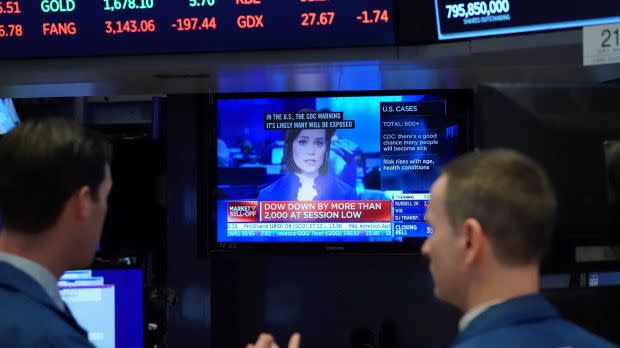The stock market turmoil is the “biggest,” “largest,” and “worst,” but not so much the “safest”

The word “biggest” is carrying a heavy burden.
As worry about the new coronavirus cascades through financial markets, journalists have been sharpening up their superlatives. Reuters reported yesterday that an index of global stocks was “on track for its biggest daily drop since the depths of the global financial crisis in December 2008.” Reporters at the Guardian wrote that “the biggest sell-off came in Italy.”
Superlatives are a staple for financial journalism. As former Bloomberg editor-in-chief Matthew Winkler wrote in The Bloomberg Way: A Guide for Reporters and Editors, this element of size and scope tells us the subject’s importance or ranking. And if recent sizes and scopes are any indication, stock market declines have been important—and volatile. As Bloomberg reports, the S&P 500 bounced higher today, after dropping 8% on Monday in the worst day of trading since the financial crisis.
That’s where “biggest” comes in. It has been by far the most favored superlative in news stories about the stock market, followed at some distance by the words “largest” and “worst.”
Quartz compiled data from 119 stories containing the phrase “stock market” from a set of nearly 2,400 articles downloaded Sunday and Monday by researchers at the University of California at Berkeley’s Newslens project. We picked out the superlatives using a natural language model called spaCy that recognizes parts of speech.
The data shows that superlatives like “darkest” and “holiest” have been much less popular. And as the spread of Covid-19 disrupts supply chains, causes worker shortages, and threatens to tip economies into recession, “safety” has been in short supply. So much so that the word was only used once—by the New York Times to describe US Treasury bonds:
The safest assets out there — bonds issued by the U.S. government — have shot higher in price. For the first time, the interest rates on 10-year Treasury note shriveled this week to less than 1 percent, falling on Friday to a record low of 0.71 percent.
Sign up for the Quartz Daily Brief, our free daily newsletter with the world’s most important and interesting news.
More stories from Quartz:
This interactive map from Johns Hopkins University shows the effects of coronavirus in real time
Senators demand records illuminating dark money ties to Supreme Court appointments
